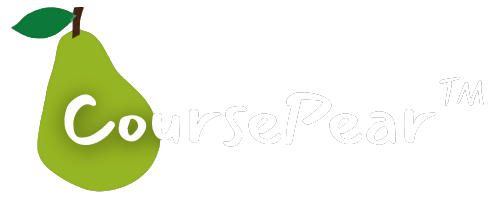🍐 我们总结了美国代写中——AP代写的经典案例,如果你有任何代写Essay的需要,可以随时联络我们。CoursePear™ From @2009。
P.s 我们有专门针对如何写Essay Outline的文章,请点击查看。
Major Argument Essay
你将开始一篇主要的论文,对一篇较长的非虚构作品作出回应。对于这篇论文。
你将阅读一本你感兴趣的非虚构作品。在阅读这本书时,你将做笔记,对作者提出的论点作出回应。你将分析目的和论点,并以额外的证据回应论点。使用额外的来源,你将同意、不同意或修饰你的作者提出的论点。这是一个论点,而不是一个分析。
你的最终成果将是一篇6-8页的文章,其中你将根据你所选书籍的论点或论据提出自己的论点。对于像《完美风暴》这样的叙事书来说,这可能比较困难,但你也可能因为困难而找到一个更有趣的角度。
目的:通过在图书馆的独立研究和学术研究过程,了解所有你能了解的东西,然后根据你所选择的书,提出最有力的论点。
受众。让我们假设一个大学年龄段的听众,他们已经读过你的同一本书,并且正在阅读你的文章,对其中的一个论点进行深思熟虑的评论。
细节。
-一篇6-8页的文章,你在其中介绍你的书所涉及的论题,然后以一种信息量大、有说服力的方式说明你的情况。
-你将使用你的书作为主要来源,然后从你所做的研究中获得6-10个次要来源。
-本文的重点仍将放在主要资料上;次要资料将被用来支持、扩大、深化、提出其他解释,或为某一观点提供背景。
-你可以引用、转述或总结,但你必须为任何不属于你自己的想法引用你的来源。这就是为什么你要认真做笔记。
-抄袭是件大事。大学在这方面有严格的标准,你也应该如此。切勿抄袭。
-虽然你的听众已经读过这本书,但在你的论点周围建立一个背景仍然很重要,提醒你的读者书中的关键部分,以便他或她可以判断你的论点的有效性。
-你的声音应该是正式的,用第三人称,不使用缩略语,不随便提及,也不使用俚语。
- 我在下面列出了非小说类书籍,但欢迎你找到你更喜欢的书。在选择书籍时,也要考虑你要写什么类型的论文。
- 《完美风暴》,作者塞巴斯蒂安-荣格
- 《玻璃城堡》。回忆录》,简妮特-沃尔斯著
- 《冷血》,杜鲁门-卡波特著
- 《Into Thin Air: 珠穆朗玛峰灾难的个人记录》,乔恩-克拉考尔(Jon Krakauer)著 《进入荒野》,乔恩-克拉考尔著
- 《广岛》,约翰-赫西著
- 《丁克溪的朝圣者》,安妮-迪拉德著
- 《快餐国家》,埃里克-施洛瑟著
- 《Nickel and Dimed: 在美国(不)过得去》,Barbara Ehrenreich著 《进步的悖论》,Gregg Easterbrook著
- 《无处的地理》,詹姆斯-霍华德-康斯特勒著
- 《摆脱奴役》(Up From Slavery),布克-T-华盛顿著
- 《像爵士乐一样的蓝色》,唐纳德-米勒著
- 安妮-拉莫特(Anne Lamott)的《旅行的恩惠》(Traveling Mercies)。
Major Argument Essay
You are going to begin a major essay that responds to a longer work of nonfiction. For this essay,
you will read a work of nonfiction that interests you. While reading this book, you will take notes responding to the arguments made by the author. You will analyze purpose and thesis, and you will respond to the argument with additional evidence. Using additional sources, you will agree with, disagree with, or qualify the argument your author makes. This is an argument, NOT an analysis.
Your final product will be a 6-8 page essay in which you will make your own argument based on the argument, or an argument, of the book you have chosen. This may be more difficult for a narrative such as The Perfect Storm, but you may also find a more interesting angle because of the difficulty.
Purpose: To learn all you can about and through the independent process of research and scholarship in a library and then make the strongest case possible for an argument based on the book you have chosen.
Audience: Let’s assume a college-age audience who has read the same book you have and is reading your essay for a thoughtful commentary on one of the arguments it contains.
The Details:
-A 6-8 page essay in which you introduce your thesis on the topic your book addresses and then make your case in an informative, persuasive way.
-You will use your book as the primary source and then 6-10 secondary sources from the research you’ve done.
-The emphasis in this paper will still be on the primary source; the secondary sources will be used to support, broaden, deepen, suggest alternative interpretations, or provide a context for a point.
-You can quote, paraphrase, or summarize, but you must, of course, CITE your sources for any thinking that is not your own. This is why you take careful notes.
-Plagiarism is a big deal. Colleges have strict standards about this, and so should you. Do not plagiarize.
-While your audience has read the book, it is still important to build a context around your argument, reminding your reader of key parts of the book in order that he or she can judge the validity or your thesis.
-Your voice should be formal, in third person, and with no contractions, casual references, or slang.
- I have listed nonfiction books below, but you are welcome to find a book you would enjoy more. Think about what type of paper you are writing when selecting a book as well.
- The Perfect Storm, by Sebastian Junger
- The Glass Castle: A Memoir, by Jeannette Walls
- In Cold Blood, by Truman Capote
- Into Thin Air: A Personal Account of the Mt. Everest Disaster, by Jon Krakauer Into the Wild, by Jon Krakauer
- Hiroshima, by John Hersey
- Pilgrim at Tinker Creek, by Annie Dillard
- Fast Food Nation, by Eric Schlosser
- Nickel and Dimed: On (Not) Getting By in America, by Barbara Ehrenreich The Progress Paradox, by Gregg Easterbrook
- The Geography of Nowhere, by James Howard Kunstler
- Up From Slavery, by Booker T. Washington
- Blue Like Jazz, by Donald Miller
- Traveling Mercies, by Anne Lamott
CoursePear™是一家服务全球留学生的专业代写。
—-我们专注提供高质靠谱的美国、加拿大、英国、澳洲、新西兰代写服务。
—-我们专注提供Essay、统计、金融、CS、经济、数学等覆盖100+专业的作业代写服务。

CoursePear™提供各类学术服务,Essay代写,Assignment代写,Exam / Quiz助攻,Dissertation / Thesis代写,Problem Set代做等。
